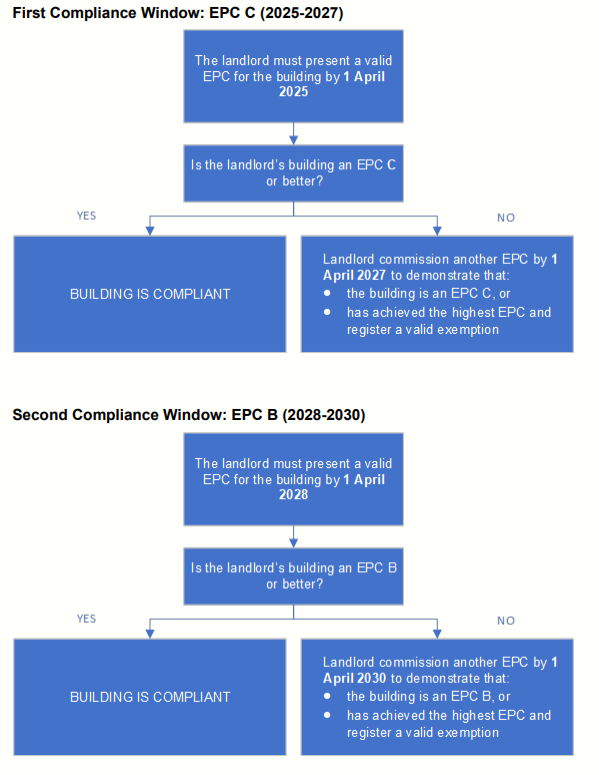Insights
Making sense of Minimum Energy Efficiency Standards (MEES).
Helping you decipher industry changes.
First up, as we guide you through the changing regulations on the pathway to net zero carbon, are the MEES.
The Minimum Energy Efficiency Standards (MEES) are expected to require landlords to upgrade their buildings to Energy Performance Certificate (EPC) B rating by 2030.
This is part of new energy performance regulation proposals, intended to reduce the energy usage of commercial and industrial buildings by 30%.
The current proposals are to implement this in two stages:
First Compliance Window: EPC C (2025-2027)
- 1 April 2025: Landlords of all non-domestic rented buildings in scope of MEES must present a valid EPC.
- 1 April 2027: All non-domestic rented buildings must have been improved to an EPC of C or better (or register a valid exemption).
Second Compliance Window: EPC B (2028-2030)
- 1 April 2028: Landlords of all non-domestic rented buildings in scope of MEES must present a valid EPC.
- 1 April 2030: All non-domestic rented buildings must have been improved to an EPC of B or better (or register a valid exemption).
At each enforcement date in 2027 and 2030, landlords will need to demonstrate that the building has reached the highest EPC band that a cost-effective package of measures can deliver.
In order to gain exemption from full compliance, the test will be based on a seven-year payback test for feasible improvements. Note that, in the case of an exemption, the EPC will show the (sub-standard) rating.
Landlords can be fined up to £150,000 (by local authority trading standards) where they are found to have breached the regulations.

For help with MEES-related enquiries, contact DavidOSullivan@hoarelea.com